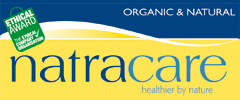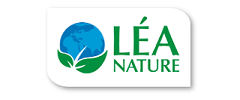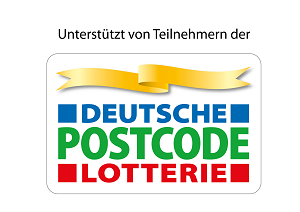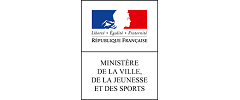Preparation for Copenhagen – climate protection and renewable energy as a chance for economy, politics and civil society in Eastern Europe, the Caucasus and Central Asia through technology and knowledge transfer
Wegbereitung für Kopenhagen – Klimaschutz und Erneuerbare Energien als Chance für Wirtschaft, Politik und Zivilgesellschaft in Osteuropa, Kaukasus und Zentralasien durch Technologie und Wissenstransfer
20.09.2009
| Countries: | Germany, Russia (involving Ukraine und Belarus), Georgia (involving Armenia and Azerbaijan) and Central Asia (Kazakhstan, Kyrgyzstan, involving Tajikistan and Uzbekistan) and Denmark. |
| Donors: | German Federal Ministry for the Environment (International Climate Initiative), Nature Conservation and Nuclear Safety, Dutch Ministry of Foreign Affairs |
| Partners: | Women and Environment NGO partners in the region: Eastern Europe: Russia: Network Russian Socio-Ecological Union (over 200 NGO members)), Friends of the Baltic (coordinator for Eastern Europe) Ukraine: National Ecological Centre Ukraine Belarus: Ecoproject South Caucasus: Georgia: The Green Movement of Georgia, Akhaltsikhe (coordinator for Caucasus), RCDA – Rural Centre Development Agency, SEMA, PAROS, Caucasus Environment Azerbaijan: EKOT Armenia: Armenian Women for Health and a Healthy Environment (AWHHE) Central Asia: Kyrgyzstan: Civic Environmental Foundation "UNISON" (co-coordinator for Central Asia) Ecological Movement "BIOM", Public Foundation "Camp Alatoo", Foundation „Habitat for Humanity“, Public Association "Ulgu", ALGA/Rural Women, Agerkech Tajikistan: For the Earth, ASPD NAU, Safo, Youth Ecological Centre Uzbekistan: Mehriban, Youth Ecological Network Uzbekistan, Adek Kazakhstan: Jabagly Manas, UGAM, Young Guards of Nature, Eco Museum Karaganda, EcoCenter (co-coordinator Central Asia) Cooperation partners/experts: SPARE (Norway); Solar Partner Sued; Atmosfair (Germany), Act Alliance (international) |
| Issues: | Energy, climate and gender |
| Duration: | 10/2009 - 11/2010 |

Overall objective
Training and cooperation of 33 women and environment NGOs and local/national authorities to develop sustainable solutions for energy in the region and the necessary policy initiatives and implementation measures on regional, national and international level (UNFCCC COP 15 Copenhagen) to face the challenge of climate change and to find concrete answers for the region concerning these issues, addressed in policy recommendations as results of the three conducted climate conferences/workshops and the development of programmatic CDM (Clean Development Mechanisms) projects and to the local context adapted solar collectors for sustainable implementation on international and national level.Specific objectives
1.) Development of a feasibility study for programmatic CDM in this region and three PINs (Project Idea Notes) by the partner atmosfair.2.) Transfer of technology – demonstration of examples for sustainable energy solutions for rural areas of the project region (focus on solar collectors) with reference to national and international level.
3.) Expansion of knowledge and establishment of a dialogue among 33 NGOs in this region and different stakeholders from administration, science, policy and economy in the field of climate protection and sustainable energy for UN Climate Conference (Copenhagen 2009) and beyond in three regional climate conferences/workshops (one for the Caucasus, one for Eastern Europe, one for Central Asia)
4.) Highlighting the potential of renewable energy in other fields, such as climate change e.g.
5.) Focusing attention on experience in everyday life and duties of women and men related to energy/climate change in the region; input for the position papers of the Women and Gender Constituency and the Climate Action Network by the WECF delegation in Copenhagen.
The project paid special attention on gender aspects and the role of women’s leadership in mitigation of and adaptation to climate change since women are especially vulnerable to climate change due to their minor means to adapt (70% of the poorest in the world are women). However, they also have a high potential and knowledge as agents of change to find solutions to climate change, which so far is still neglected.
Main results:
1. Potential for co-financing sustainable energy technologies via programmatic CDM: This was examined in the study „Feasibility of CDM funding for household and community level projects - with examples from the Caucasus and Central Asia“. Three PINs with a potential for reducing emissions totalling 30.000t CO2 were developed.2. Thematic workshop “Solar”: training on an affordable and suitable solar collector for Kazakhstan, as well as a multi-stakeholder conference for exchanging views on sustainable energy legislation and energy efficiency: The workshop in Kazakhstan took place as an example for technology transfer (German sustainable energy technology, adapted to local needs).
3. Ways for climate protection: regional climate conferences and UNFCCC process, as a contribution to an ambitious and just post-Kyoto agreement: The South Caucasus Climate Conference in Georgia "Development of NGO Capacity and Public Awareness on Climate Change Mitigation Measures in Caucasus" on October 27-28 2009 took place and had the desired effects on further educating NGOs in climate issues and the exchange between NGOs and political and societal representatives took place. A three countries climate workshop (Russia, Ukraine, Belarus) in St. Petersburg was conducted: NGOs were further educated, exchange was enabled, a common position paper concerning the countries’ climate and energy policy for the COP 15 was developed. The Second Central Asian-European Forum on Climate Change" - CAEFOCC-II in Almaty, Kazakhstan, October 11-12, 2010 took place.
4. During the UNFCCC sessions the planned trainings and side events took place. WECF was an active member of the Women and Gender Constituency and the Climate Action Network EECCA addressing the issue via information material at the booth, at the side events, interventions and dialogue, discussion and advocacy work at the UNFCCC and connected processes, handing in a submission regarding CDM.
5. Publications: free info material is accessible on www.wecf.eu; a platform for dialogue was established; development of the flyers "Improving livelihoods in rural areas with sustainable energy - practical solutions" (in English, German, Dutch, French and Russian) and WECF Publication "Gender and Climate Change" (in English and Russian) as well as the feasibility study "Feasibility of CDM funding for household and community level projects with examples from Caucasus and Central Asia". Several articles in well-known newsletters and magazines, reaching thousands of people. The request for the different articles and position papers and other events on the issue exceeded the expected response and made the project results stronger.
Outcome
The activities contributed to build the capacity of the project partners and other related stakeholders (local and national authorities, politicians, representatives of local business and universities) to find joint solutions to energy poverty, poverty reduction and to work on the transformation of the energy sector towards a sustainable energy and climate protection and with a special focus on gender including a multi-stakeholder approach. The projects made vital contributions to the political and practical level. Due to its specific structure as capacity-building project and the close collaboration with local NGOs it already delivered on its targets and is sustainably positioned in the region.Sustainability
The programme contributed significantly to a strengthening of the civil society in a region where it is needed, and where an active civil society under democratic rules is still a new concept. The active participation of women in decision-making processes is due to traditional roles and other discriminatory obstacles also new and needed empowering and gender mainstreaming. Adaptation to climate change and a restructuring of the energy sector can only be tackled by the society as a whole. Consequently, strengthening and increasing the knowledge of this target group is of great importance. Also the exchange between the different actors in the region - which otherwise does not take place - gives important impetus for a just climate regime. Further, the project originated on the basis of local needs assessments – done by local people. The project is thus very sustainable as the knowledge will be contained in the NGOs which were involved and will be further used in other projects and activities in the region. Lasting networks and contacts developed between civil society and government representatives, which can be further expanded.Donor
Related News
Meet the Winners of the Gender Just Climate Solutions Award at COP24
On the 70th anniversary of the Universal Declaration of Human Rights, we awarded Gender Just Climate Solutions Winners at the climate negotiations in Katowice, Poland
11.12.2018
Invitation: Gender Just Climate Solutions Award 2018
10 December, COP24 Katowice
04.12.2018
Getting to the Future We Want
4-7 November, Brussels: European Environmental Bureau’s (EEB) Annual Conference
12.11.2018
GoodFood4All
WECF and partners all over Europe start GoodFood4All Campaign
06.11.2018
#Ruralwomen: join our Women2030 campaign!
15.10.2018
Lack of trustworth information is a barrier to chemicals & product related decision-making
8-9 October, Geneva: short report of the meeting of the Aarhus Convention’s task force on public participation in decision-making
12.10.2018
Congratulations Sascha!
Named thirty-third most influential sustainability fighter in the Netherlands
08.10.2018
The Netherlands in the next gear - Adopt an SDG Live!
WECF and Building Change organised the event “The Netherlands in the next gear – Adopt an SDG live” on 27 September in the Koorenhuis in The Hague
02.10.2018
Human Biomonitoring for Europe
Vienna, 26 September: stakeholder forum
28.09.2018












































